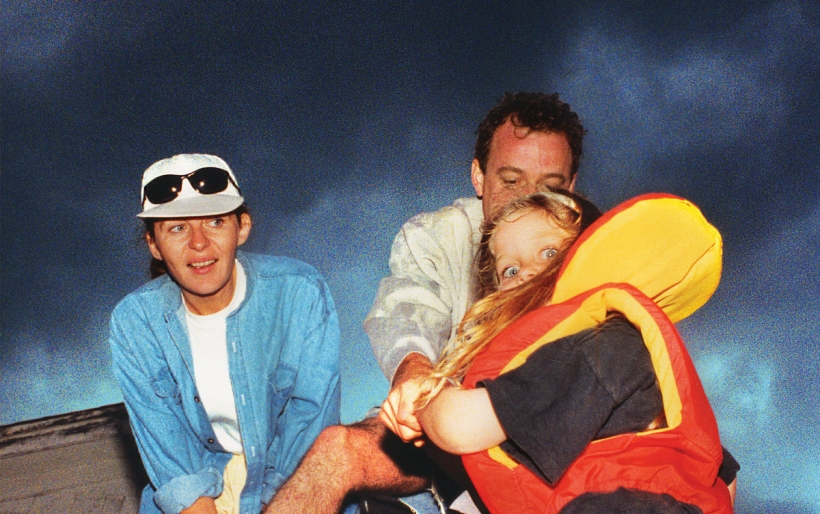One of the most important drum fills in the history of modern music is also one of the simplest. Four martial thwacks on a snare, and the listener is plunged into a roiling vortex of noise unlike anything that’s been heard before or since. The song is “Only Shallow,” which kicks off My Bloody Valentine’s genre-defining opus Loveless. 30 years and some change later, it takes Alvvays only a few extra seconds to tear an MBV-sized hole in their music, when lead single and opening track “Pharmacist” explodes into fireworks of tremolo bar strums and distortion. From that broken dam pours the torrential deluge of experimentation and meticulous songwriting that is Blue Rev, the band’s third — and best — album.
Alvvays’ first two full-lengths, 2014’s self-titled and 2017’s Antisocialites, were already held close by devoted fans, and produced some of the last decade’s most endearing and enduring indie pop (check out “In Undertow” and “Archie, Marry Me”) even if they didn’t pull a lot of critical weight. Blue Rev is different; it’s an achievement in the undeniable, bowls-you-over sense. Not simply a synthesis of everything that makes this band great, it rolls up over half a century of beloved songs into a svelte 34 minutes, then does them one better. If Blue Rev already existed, there’s no way it wouldn’t be regarded as a masterpiece, so why not skip the wait to give it the praise it deserves?
From a textural standpoint, Blue Rev’s compositions are an accomplished balance of density and detail. On the one-two punch of “Pharmacist” and “Easy On Your Own?”, anthemic choruses are underpinned by woozy synthesizers and fuzzed-out guitars, which create a sea spray of overtones by bending ever so slightly in and out of pitch. Much of the credit goes to Shawn Everett, whose engineering work with The War On Drugs and Kacey Musgraves is remarkable for the way it captures each instrument in crystal-clear resolution. His collaboration with Alvvays, though, represents a new high-water mark for the producer, in how he manages to preserve their capacity to bowl you over with noise at the same time.
That could be thanks to Everett’s unorthodox approach to recording: after an extensive demoing process, he instructed the band to play through Blue Rev in its entirety, with only 15 seconds between each song and thirty minutes between each take. It brings a sense of immediacy to the album, and if it caused any strain, none of the players seem to be sweating it. Guitarist Alec O’Hanley, in particular, is in rare form across the whole tracklist. At points, he churns up squalls of noise à la Kevin Shields; at others, like “Pressed” and “Many Mirrors,” he channels both Lush and the jangle pop stylings of Johnny Marr. There’s a song on here called “Tom Verlaine,” and given O’Hanley’s grasp of interplay and harmonics, a Television comparison wouldn’t be off base.
